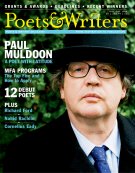If not for exemplars of solid, sturdy—and sometimes quirky—Illinois presses like Featherproof Books (www.featherproof.com), Hourglass Books (www.hourglassbooks.com), and Haymarket Books (www.haymarketbooks.com), one might get the impression that the grass is greener elsewhere. In the past few months, two literary publishers have announced moves out of the Prairie State—apparently Chicago is not indicative of the Illinois landscape—to other pastures. Fiction Collective Two (fc2.org), a cooperative publishing venture founded in 1974 as the Fiction Collective and renamed in 1989, moved in April from Northwestern University Press in Chicago to the University of Alabama Press in Tuscaloosa, where it is now an imprint directed by Daniel J. J. Ross. Coincidentally, two of the nearly two hundred books on FC2's backlist were written by members of the University of Alabama's creative writing program—Kate Bernheimer, whose second novel, The Complete Tales of Merry Gold, was published in September; and Michael Martone, whose self-titled experimental "appendix" was the Summer 2006 selection for the Litblog Co-op's Read This! program. About 130 miles southwest of Chicago, in Normal, Illinois, John O'Brien and the staff of Dalkey Archive Press (www.dalkeyarchive.com) are packing boxes in preparation for their move to the University of Rochester, in western New York, come January. Once there—in the Flower City, in case anyone was wondering—Dalkey Archive will join BOA Editions Ltd. (www.boaeditions.org), the thirty-year-old indie press, and Writers & Books, a nonprofit center that promotes reading and writing, in supporting the area's literary community. In addition to the thirty titles it releases each year—recent notables include the late Gilbert Sorrentino's Red the Fiend and Mark Binelli's Sacco and Vanzetti Must Die!—Dalkey Archive publishes the Review of Contemporary Fiction and CONTEXT, a literary magazine that is distributed free to bookstores, universities, and libraries. (It's also available online at www.centerforbookculture.org.) Fiction writer Joanna Scott, who teaches at the University of Rochester, calls Dalkey Archive "a haven for the best of modern and contemporary world literature, a small press with a huge impact." There's clearly nothing Normal about it.
Omnidawn Publishing (www.omnidawn.com), the small press founded by Ken Keegan and Rusty Morrison in Richmond, California, started publishing books of poetry in 2001. Within five years they had released fifteen of them, including Lyn Hejinian's The Fatalist, Paul Hoover's Poems in Spanish, and Martha Ronk's In a landscape of having to repeat. They recently expanded their purview to include fiction, with the publication in August of an anthology impressive both for its size (a whopping 640 pages) and scope—although its title could perhaps use a little trimming. Paraspheres: Extending Beyond the Spheres of Literary and Genre Fiction—Fabulist and New Wave Fabulist Stories includes works by Laird Hunt, Shelley Jackson, Tom La Farge, Laura Moriarty, Bradford Morrow, Laura Mullen, Ira Sher, Mark Wallace, and thirty-six others whose work the editors claim won't fit into the categories of "literary" or "genre" fiction. Rather than use the term "speculative fiction," coined by Robert A. Heinlein in 1947, Morrison and Keegan opted for "fabulist" and "new wave fabulist." The latter was used by Peter Straub in an issue of Conjunctions a few years ago to describe a group of writers whose work explores and erases the boundaries of the science fiction, fantasy, and horror genres. "By presenting this fiction as neither literary nor genre, but rather as something else, we are avoiding the pitfalls of claiming literary status for these works," Keegan writes, in a rather extensive explanation of the title, in the anthology's afterword. "In presenting this anthology we hope to exist partly in both forms as well as extending beyond them, and to build a bridge between the two, where writers and readers from both can easily meet and explore fiction outside the boundaries imposed by the two accepted forms." In other words, read the stories—not the title.
Kevin Larimer is the senior editor of Poets & Writers Magazine.








